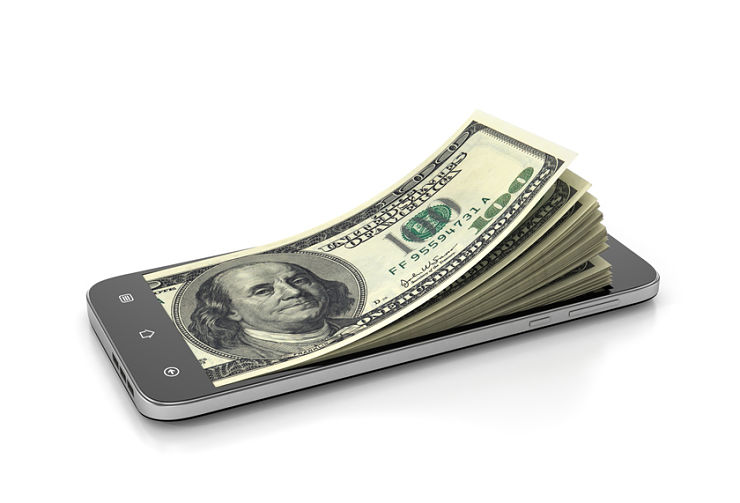You’ve filed bankruptcy.
Your creditors are stayed.
A bankruptcy discharge is ahead.
You’re out from under unrelenting pressure to pay creditors.
But don’t let your sense of relief keep you from planning: who should you pay after your case is filed?
Paying creditors after filing bankruptcy
Two legal realities drive who needs to be paid going forward:
- Not all debts are discharged in bankruptcy
- Liens survive bankruptcy, unless there’s a court order otherwise.
Is this debt discharged?
The scope of the bankruptcy discharge is different in Chapter 7 and Chapter 13.
The list of exceptions to discharge that apply in Chapter 7 is longer. Chapter 13 discharges more debts, but the discharge isn’t effective until the last plan payment is made.
Child and spousal support are not dischargeable in any chapter of bankruptcy. To the extent not paid in the case, your obligation for delinquent and future support continues.
Student loans are the other blockbuster debts that survive a discharge in either 7 or 13.
Recent taxes are the third common debt excluded from the discharge.
Is the debt secured by a lien?
The discharge wipes out your personal liability for dischargeable debts. But any lien associated with the debt survives as a charge on property you owned before filing.
So, you need to decide whether this is an asset 1) you want to keep, and 2) is the creditor likely to enforce the lien if you don’t pay?
If you are surrendering real property or a car you can’t really afford, don’t pay because you don’t intend to retain the asset. If it’s a tax lien that attaches only to your household goods, it’s probably safe to not pay. The IRS isn’t interested in your dirty socks.
However, if it’s your home or the car that gets you to work every day, then you want to stay current or get current, lest the creditor enforce the lien.
More money, less information
Sometimes, who to pay after bankruptcy is easier than how to pay. One of the exceptionally frustrating things about filing bankruptcy is that even when you want to keep paying on your home or your car, the creditor doesn’t send a statement so you know when and how much to pay. Or they cut off payment online.
While I rail about the insanity of the situation, the creditor who stops sending statements is generally just playing it safe. Send a statement and you can be accused of violating the automatic stay or the discharge injunction.
Ask the creditor to send statements. Ask your bankruptcy attorney to get court permission for the sending of statements.
And even if the creditor doesn’t make it easy, be persistent. You care about keeping your stuff far more than the creditor cares about your convenience.
Most banks terminate automatic payment arrangements or even access to online banking when you file. Make sure that you are watching your accounts and monitor whether things you want paid are getting paid.
Make and keep a record of having paid; creditors are notorious for misapplying or not applying payments.
Being “in bankruptcy”
If you filed Chapter 7, I gotta tell you : there’s no “there there” in bankruptcy. Chapter 7 is more like an event than like a place.
You file your case: it affects those you owe when you file, and encompasses what you own at the moment when you file.
There are a couple more steps to take between filing and getting your discharge. You must appear at the first meeting of creditors; cooperate with the trustee in your case; and complete debtor education.
The trustee may be the nominal owner of your assets until your exemptions become final. But most Chapter 7 cases are no-asset cases where the trustee never takes possession of a single asset.
And whatever you earn after the day on which you file is yours to spend however you choose.
For the vast majority of debtors, life is largely unaltered by filing. You aren’t really “in” anything.
So, you are both free to, and expected to, continue to make payments on secured debts where you’re keeping the collateral. If you need to reaffirm a car loan, one of the first questions the judge often asks is whether you are current on payments. If you want the judge’s approval of the reaffirmation, your answer needs to be “yes”.
You likely want to keep making payments on support obligations and student loans. If you have taxes that will survive the bankruptcy, nothing prevents you from making payments that chip away at the non dischargeable taxes.
Paying in Chapter 13
Who to pay in Chapter 13 is more complicated. You start by reading and understanding the plan that you have filed in your case.
It will tell you whether you pay your mortgage directly yourself or pay it through the Chapter 13 trustee.
If you’re in doubt, ask your attorney.
Nothing good happens when you ignore your plan
I’ve encountered more than a couple of Chapter 13 debtors recently who didn’t understand how the mortgage was to be paid, going forward. A couple of others assumed that in the absence of monthly statements, it was being taken care of.
Not so.
Unless, of course, your plan provides for stripping off a lien. If a lien is stripped, at best that creditor is treated as a general unsecured creditor.
If in doubt, ask your attorney.
Your plan undoubtedly provides for payment by the trustee of any amounts you owe for taxes as of the filing of your case. ‘
But your plan deals only with tax years that are complete when you file. You are expected to pay directly and in full any taxes that come due in the year in which you file your case and years after.
Using taxes to pass the means test
Failure to stay current on taxes is grounds for dismissal of your Chapter 13 case, even if your payments to the trustee are fully current.
Pay yourself after bankruptcy
For me, one of the most compelling reasons to file bankruptcy, even when there is no crisis, is to free up money to provide for your old age.
You do expect to live to a ripe old age, don’t you?
To age in comfort and independence, it requires money. And Social Security won’t do it: the average Social Security check is under $1300/month.
Start immediately after filing setting aside money from each paycheck. Save before you pay anyone else, not after.
Empowering retirement savings is the unsung benefits of bankruptcy.






